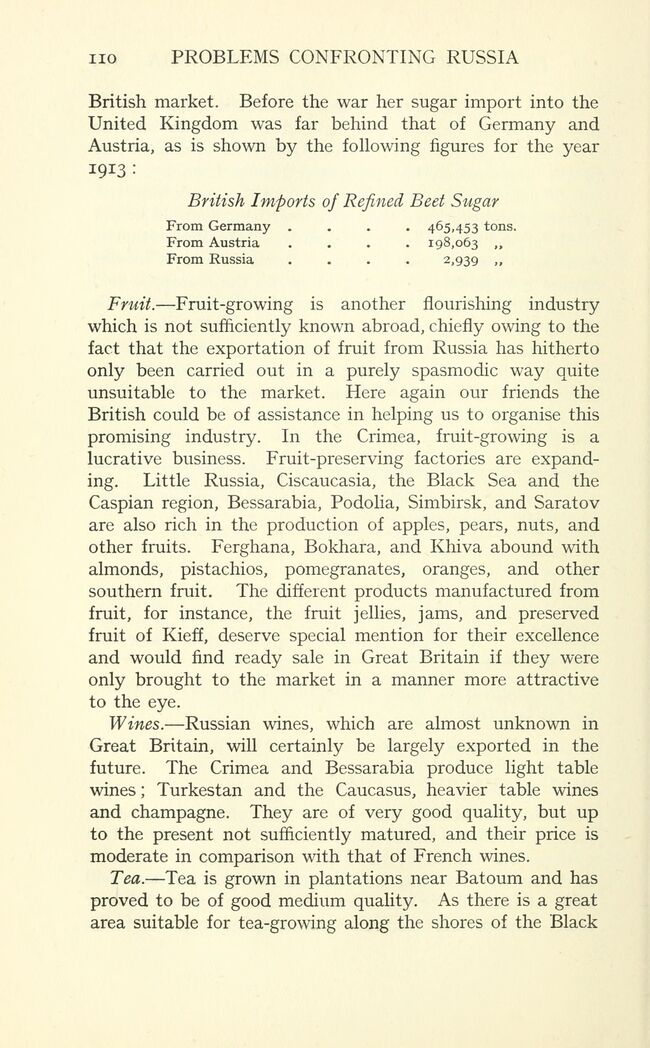
Full resolution (JPEG) - On this page / på denna sida - IX. The economic resources of Russia with special reference to British industrial and commercial opportunities

<< prev. page << föreg. sida << >> nästa sida >> next page >>
Below is the raw OCR text
from the above scanned image.
Do you see an error? Proofread the page now!
Här nedan syns maskintolkade texten från faksimilbilden ovan.
Ser du något fel? Korrekturläs sidan nu!
This page has never been proofread. / Denna sida har aldrig korrekturlästs.
102 PROBLEMS CONFRONTING RUSSIA
British market. Before the war her sugar import into the
United Kingdom was far behind that of Germany and
Austria, as is shown by the following figures for the year
1913:
British Imports of Refined Beet Sugar
From Germany .... 465,453 tons.
From Austria .... 198,063 ,,
From Russia .... 2,939 ,,
Fruit.—Fruit-growing is another flourishing industry
which is not sufficiently known abroad, chiefly owing to the
fact that the exportation of fruit from Russia has hitherto
only been carried out in a purely spasmodic way quite
unsuitable to the market. Here again our friends the
British could be of assistance in helping us to organise this
promising industry. In the Crimea, fruit-growing is a
lucrative business. Fruit-preserving factories are
expanding. Little Russia, Ciscaucasia, the Black Sea and the
Caspian region, Bessarabia, Podolia, Simbirsk, and Saratov
are also rich in the production of apples, pears, nuts, and
other fruits. Ferghana, Bokhara, and Khiva abound with
almonds, pistachios, pomegranates, oranges, and other
southern fruit. The different products manufactured from
fruit, for instance, the fruit jellies, jams, and preserved
fruit of Kieff, deserve special mention for their excellence
and would find ready sale in Great Britain if they were
only brought to the market in a manner more attractive
to the eye.
Wines.—Russian wines, which are almost unknown in
Great Britain, will certainly be largely exported in the
future. The Crimea and Bessarabia produce light table
wines; Turkestan and the Caucasus, heavier table wines
and champagne. They are of very good quality, but up
to the present not sufficiently matured, and their price is
moderate in comparison with that of French wines.
Tea.—Tea is grown in plantations near Batoum and has
proved to be of good medium quality. As there is a great
area suitable for tea-growing along the shores of the Black
<< prev. page << föreg. sida << >> nästa sida >> next page >>